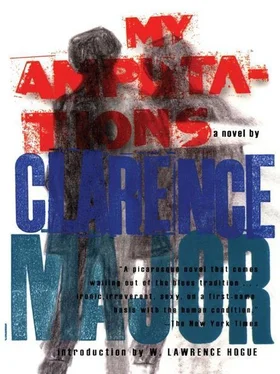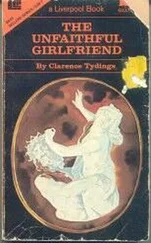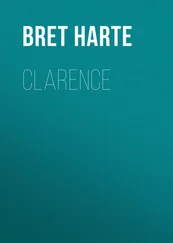Clarence Major - My Amputations
Здесь есть возможность читать онлайн «Clarence Major - My Amputations» весь текст электронной книги совершенно бесплатно (целиком полную версию без сокращений). В некоторых случаях можно слушать аудио, скачать через торрент в формате fb2 и присутствует краткое содержание. Год выпуска: 2008, Издательство: Fiction Collective 2, Жанр: Современная проза, на английском языке. Описание произведения, (предисловие) а так же отзывы посетителей доступны на портале библиотеки ЛибКат.
- Название:My Amputations
- Автор:
- Издательство:Fiction Collective 2
- Жанр:
- Год:2008
- ISBN:нет данных
- Рейтинг книги:5 / 5. Голосов: 1
-
Избранное:Добавить в избранное
- Отзывы:
-
Ваша оценка:
- 100
- 1
- 2
- 3
- 4
- 5
My Amputations: краткое содержание, описание и аннотация
Предлагаем к чтению аннотацию, описание, краткое содержание или предисловие (зависит от того, что написал сам автор книги «My Amputations»). Если вы не нашли необходимую информацию о книге — напишите в комментариях, мы постараемся отыскать её.
My Amputations — читать онлайн бесплатно полную книгу (весь текст) целиком
Ниже представлен текст книги, разбитый по страницам. Система сохранения места последней прочитанной страницы, позволяет с удобством читать онлайн бесплатно книгу «My Amputations», без необходимости каждый раз заново искать на чём Вы остановились. Поставьте закладку, и сможете в любой момент перейти на страницу, на которой закончили чтение.
Интервал:
Закладка:
Clarence Major
My Amputations
To the people who must find themselves
“You are you because your little dog knows you.”
— Gertrude SteinIntroduction by W. Lawrence Hogue
When My Amputations was published in 1986, it was heralded by writers and critics as a major literary achievement. Toni Morrison, Ntozake Shange, and Charles Johnson spoke of Clarence Major's mind and talent, his inventive use of language that drew together influences from black music, poetry, the blues, and painting. A reviewer for the New York Times wrote that My Amputations is “distinguished by a rich and imaginative prose poetry of evocative power.” Awarding it the 1986 Western States Book Award for Fiction, jurors Denise Levertov, Robert Haas, Jonathan Galassi, and Sandra Cisneros deemed the text “an explosively rich book about a man pursued by his shadow…. My Amputations is distinguished by the extraordinarily inventive rhythms of its language. A book full of laughter and rueful sadness and swift contempt, its deepest resonance is the hunger to be healed.” The critic Jerome Klinkowitz wrote that My Amputations is “living fiction, as close to a truly organic text as we are ever likely to see.”
Since this extraordinary reception, the study of contemporary literature has evolved dramatically, providing contemporary critics and scholars with the language, vocabulary, and theoretical concepts to re-read My Amputations , not as an “experimental” text, but as a masterpiece of postmodern fiction, as a catalyst in a new historical and epistemological development in American literature. Reflexivity, fragmented authority, indeterminacy, play, uncertainty, difference, ambiguity, and open-endedness — these post-structural and postmodern concepts challenge many of the suppositions of modern thought and modern literature. As a consequence, traditional notions of realism seem inadequate. The proposition that the writer is the “creator” of something “original” has come under serious attack. The unquestioned assumption of the text's literariness — that is, that the text possesses certain qualities that place it above the matrices of historical conditions — has been undermined profoundly. By questioning so many naturalized conventions and assumptions about modern literature, My Amputations signifies new ways to think and live in the world. Most importantly, these advancements and developments allow critics to point out how this text radically re-describes African American subjectivity.
In the 1970s and 1980s, as academics and critics struggled to come up with new uses for literature, Clarence Major had already embarked upon a literary mission to re-define the novel. Indeed, so many of the postmodern tendencies highlighted by literary theorists, and so abundantly present in My Amputations , had been evident in Major's work for years prior to that. In an interview early in his writing career, Major told John O'Brien: “the novel… takes on its own reality and is really independent of anything outside itself…. You begin with words and you end with words. The content exists in our minds. I don't think that it has to be a reflection of anything. It is a reality that has been created inside a book. It's put together and exists finally in your mind.” 1For Major, from All-Night Visitors (1969) to No (1973) to Reflex and Bone Structure (1975), to Emergency Exit (1979) and to My Amputations (1986), these texts do not reflect the social real; they are an addition to it, or are artistic objects in themselves to be admired for what they are. They have their own presence in the world, representing complex networks of ideas, images, and feeling. They refer only to themselves and to other texts. In the earlier novels All-Night Visitors and No , Major uses graphic sex to demonstrate that fiction is a linguistic invention. In later novels such as Reflex and Bone Structure, Emergency Exit , and My Amputations , Major uses personal fragmentation to explore anti-realism or the fiction-making process.
From the beginning, this knowledge and awareness gave Major the freedom to use his imagination to create fiction that allows the reader to have an experience, rather than an ill-conceived reflection of life. Choosing not to model his fiction on “the linear and formal notion of realism traditionally practiced by Negro and Black American writers,” 2Major eschews linear plot, causal logic, progress, realistic character development, and resolution. He expands the novel to incorporate other forms of speech and images such as painting, jazz and blues improvisation, techniques of detective fiction, porn movies, and cubism, as he speaks to human dimensions and possibilities that have been repressed and/or excluded in realistic texts. But in using these different forms of representation, he disturbs and even subverts their dominance, causing them to exist in this inter-textual flux.
In the 1970s, this must have been an arduous, difficult task for Major. He began writing his postmodern, anti-establishment fiction and achieving literary recognition in the aftermath of the turmoil of the 1960s. This was a time when individuals and artistic and literary communities drew clearly defined cultural and ideological lines. In many ways, he was marginalized. In not writing realistic fiction or catering to the New York literary establishment, he did not achieve the commercial successes of his contemporaries such as Alice Walker and Toni Morrison. Also, in the 1970s and 1980s, Major's brand of meta-fiction put him in direct opposition to black aesthetics and the racial uplift of African American critics, as well as in opposition to mainstream American literary critics who read African American literature in a reductive, stereotypical way. He readily responded, arguing that a black aesthetic view of literature was as stifling and repressive as a Eurocentric view. Both close down the writer and restrict him to the service of certain political ideologies. He was also accused of not writing about “real” black people, or dealing with race.
But Major does deal with race. Rather than choose race as his theme and racial conflict as his subject matter, Major probes beyond the merely political to find the roots that link the African American experience to all human experiences. His characters are black, but race “is not the totality of their identity.” 3For Major, blacks have other human identities and dimensions. In taking this approach to African American subjectivity, he obviates the “tendency to stereotype the [black] Other” 4and instead represents blacks as complex and varied, with the experience of race being one aspect of that complex existence.
Major's My Amputations is told by an omniscient narrator who shifts from third person to first person, moving in and out of the mind of the protagonist, Mason. The text has many modes: impressionistic, visual, and meta-fictional. Minimizing representational effects, it constructs the narrative in physical blocks of diverse materials, rather than in logical paragraphs. One of its techniques includes using language to build what Major calls “visual panels,” 5like Cubist pictures, which are complete within themselves. But within each block, which is filled with multiple and varied poetic imagery, the narrator constantly moves forward and backward in time.
Another technique used in My Amputations is a jazz/blues mode of improvisation that offers different takes on key situations and events. When the narrator tells the story of Mason Ellis in a jazz/blues style, he repeats information always with variations. For example, the narrator tells us of Mason's childhood in Chicago. But when he recounts Mason's childhood a second time, he also tells us that Mason was born in red-dirt Georgia. In his jazz-influenced account of Painted Turtle, one of Mason's female friends, the narrator tells us of her relationship with Mason and how it ends. Later, he does a riff on the relationship, but this time he elaborates further, recounting how the two first met.
Читать дальшеИнтервал:
Закладка:
Похожие книги на «My Amputations»
Представляем Вашему вниманию похожие книги на «My Amputations» списком для выбора. Мы отобрали схожую по названию и смыслу литературу в надежде предоставить читателям больше вариантов отыскать новые, интересные, ещё непрочитанные произведения.
Обсуждение, отзывы о книге «My Amputations» и просто собственные мнения читателей. Оставьте ваши комментарии, напишите, что Вы думаете о произведении, его смысле или главных героях. Укажите что конкретно понравилось, а что нет, и почему Вы так считаете.












